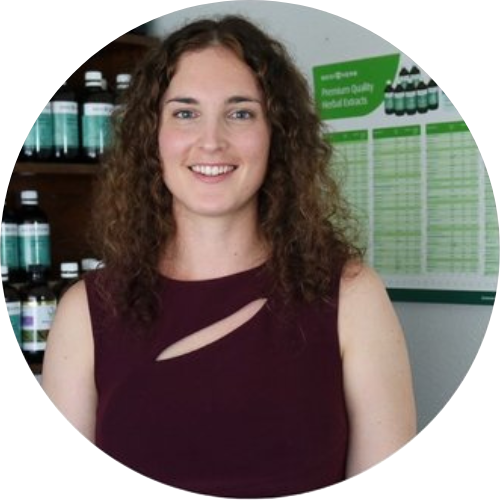
PolyCystic Ovarian Syndrome – PCOS
Polycystic Ovarian Syndrome (PCOS) is a reproductive disorder characterised by multiple cystic growths on the ovaries (polycystic ovaries). PCOS develops when the ovaries are stimulated to produce excessive amounts of male hormones (androgens), particularly testosterone. This can be caused by the release of excessive amounts of a hormone called luteinising hormone by the pituitary gland, or through high levels of insulin in the blood (in women whose ovaries are sensitive to this stimulus).
Symptoms of PCOS include; infertility due to an inability to ovulate, infrequent, absent and/or irregular periods, hirsutism (increased hair growth on the face, chin or neck), cysts on the ovaries, and oily skin or acne. Women with this condition may also notice mood swings and fatigue.
Research into the symptoms mentioned above suggests that insulin resistance is a leading cause of PCOS. Insulin resistance occurs when the hormone insulin – which is responsible for transporting glucose (sugars) into each cell, fails to work correctly (or your cells fail to respond to insulin correctly). Insulin resistance may also lead to type 2-diabetes, metabolic syndrome and fatty liver disease if left untreated. It has been suggested by researchers that the majority of patients with PCOS (some investigators say all) have insulin resistance. Insulin resistance is a common finding among both normal weight and overweight PCOS patients. You do not have to be overweight to have PCOS, however, the majority of women with PCOS are overweight.
So what can I do?
Start with your food!
Your practitioner will provide you with a prescription for any relevant herbal medicines or supplements to alleviate any symptoms you may have and to begin to restore the balance to your hormones. However diet and lifestyle changes are also going to be necessary to ensure you get the most out of your treatments.
There is no denying that healthy food is important! And this is no different when treating hormonal problems like PCOS. Quality, healthy food can make a big difference to the symptoms you are experiencing. Eating in a way that helps reduce insulin resistance is crucial to improve your symptoms.
1. Dramatically reduce (or if you can, completely remove refined sugars/chocolates/lollies/carbohydrates from your diet.
2. Choose low GI and slower digested carbohydrates such as brown rice, quinoa, buckwheat, and legumes over refined grains like white rice, breads and pastas.
3. Eat protein with each meal. Protein will help to stabilise your blood sugar levels which in turn will stop your sugar cravings, make you feel fuller for longer, satisfy your hunger and improve your energy.
4. Eat healthy fats such as avocado, coconut oil, olive oil, grass fed organic butter, salmon, and tuna with each meal. Like protein, healthy fats will help you feel full and satisfied for longer so you don’t crave the wrong foods!
5. Eat your heaped handful of fresh, organic veggies at every meal. Of course everyone knows that fresh veggies provide vitamins and minerals, but they also provide essential plant ‘phytochemicals’. These phytochemicals are compounds (think chlorophyll) that provide us with antioxidant and anti-inflammatory benefits. If you don’t want to eat veggies at breakfast time, eat organic fruits instead (but no more than 1-2 serves per day).
Exercise (and lose weight).
For women with PCOS losing as little as 5 kilos can dramatically improve their symptoms. Exercise is important because it is anti-inflammatory, stress relieving, blood sugar regulating, sleep improving…. You name it, exercise will help it! Exercise will also improve fertility for those women with PCOS who are trying to conceive.
If you don’t want to join a gym that’s ok, but at the very least you need to walk briskly for 45 minutes to 1 hour, 4 times per week. Walking is the best way to burn fat, and of course you will get some sunshine and a taste of the outdoors while you are at it. There are also hundreds of free work outs on you tube that you can do from the safety of your own home. You should not need weights or equipment for these free work outs. Research also shows that if you exercise TOO hard, you release too much of thestress hormone cortisol, which will just increase your insulin resistance further
Avoid/Remove Toxins from your life
Unfortunately we humans have created a very toxic world for ourselves. The air we breathe, the food we eat and the water we drink all contain chemicals. Consuming toxins and chemicals create a lot of work for organs like your liver, kidneys, lymphatic system (your garbage disposal system) and your gastrointestinal system. For this reason it is important to eat organic foods and produce as much as you possibly can. Many toxins are also ‘endocrine disruptors”, meaning that they disrupt your hormones. When we are balancing the symptoms of PCOS removing any endocrine disrupting chemicals from your life is essential to helping you feel great again.
Our toxic world makes it more important than ever to ensure we make the decision to reduce the toxic load on our bodies as much as possible. This is simple! Replace your cheap and nasty cleaning products with natural ones. Do they work as well as conventional cleaning products??
YES! In fact they work better and they smell amazing too. Also replace your personal care items with natural ones. Many makeup brands contain endocrine disrupting chemicals.
Another essential step to take is replacing ALL plastic bottles/containers/cups/plates/cutlery in your home with glass or metal options. Plastic also contains endocrine disrupting chemicals, and many of the chemicals mimic oestrogen in the body, further throwing out your hormone balance.
**It’s important to note that you don’t have to throw everything out at once, however the sooner you start making these changes, the sooner you will start to feel better.
Please remember that your body really wants to be well and in balance! Making the small but necessary changes mentioned above will help your body restore the balance in your hormonal system and get you back on track.
If you need help come and see the dedicated and highly experienced team a HHNHC.
Ready to get on top of your PCOS symptoms?
Your hormone specialists






